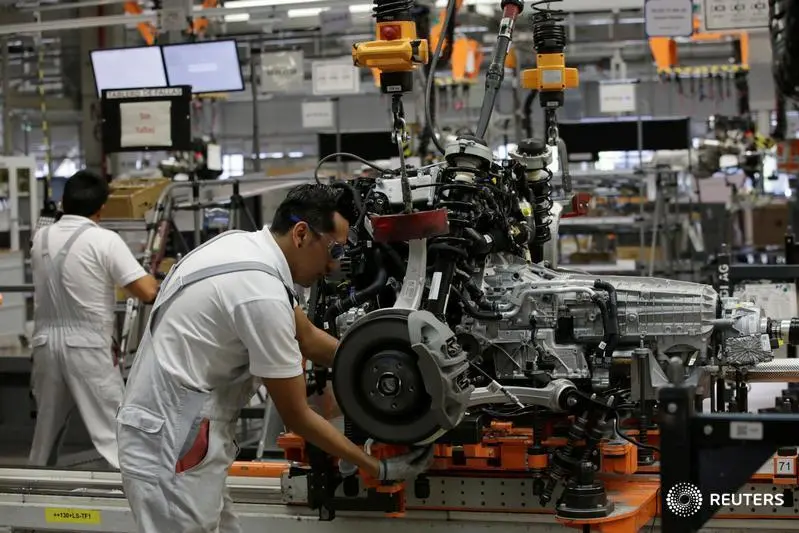PHOTO
BERLIN- Germany has the fiscal strength to counter the next economic crisis "with full force", Finance Minister Olaf Scholz said on Sunday, suggesting that Berlin could make available up to 50 billion euros ($55.45 billion) of extra spending.
With its economy on the brink of recession and borrowing costs at record lows, Germany is facing pressure at home and abroad to ditch its pledge to target balanced budgets and instead boost investment by taking on new debt.
A government official told Reuters this month that the finance ministry was toying with the idea of issuing new debt in line with the more formal debt brake rules to help to finance a costly climate protection programme.
Speaking at a government 'open day' news conference, Scholz acknowledged the debate about debt-financed spending but said a state should live within its means in economic good times, not least because this meant it would then be better-placed to act when things went wrong.
Germany's debt level is expected to fall to roughly 58% of economic output this year from 60.9% in the previous year. This would put it below the European Union's debt ceiling of 60%, giving it more flexibility on future spending.
"So if we have a debt level in Germany in relation to economic output that is below 60 percent, then this is the strength we have to counter a crisis with full force," Scholz said.
Scholz said the global financial crisis in 2008/2009 had cost Germany roughly 50 billion euros, adding: "And we have to be able to muster that. And we can muster that. That's the good news."
($1 = 0.9018 euros)
(Reporting by Michael Nienaber Editing by Gareth Jones) ((michael.nienaber@thomsonreuters.com; +49 30 2888 5085; Reuters Messaging: michael.nienaber.reuters.com@reuters.net www.twitter.com/REUTERS_DE www.reuters.de))





















